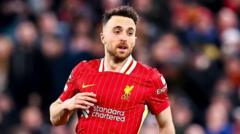Pope Francis, known for his advocacy for the marginalized and environmental issues, has died at 88, prompting global tributes and sparking discussions on the future leadership of the Catholic Church. His will expresses a wish for a simple burial, reflecting his humble nature.
Global Outpouring as Pope Francis Passes Away

Global Outpouring as Pope Francis Passes Away
The world mourns the loss of Pope Francis, the first Latin American pope, who championed social justice and inclusivity during his 12-year papacy.
April 21, 2025, Vatican City – In a somber atmosphere, the Vatican confirmed the death of Pope Francis, who passed away after suffering a stroke. As tributes flooded in, people across the globe reflected on his groundbreaking papacy, characterized by a commitment to social justice, environmental advocacy, and the embrace of marginalized communities.
Pope Francis, who marked a new chapter in the history of the Catholic Church as the first pope from Latin America, had captivated millions with his message of compassion and inclusivity. His final public appearance was on Easter Sunday, where he addressed the faithful from his wheelchair in St. Peter's Square. His untimely death at age 88 was met with shock; many had witnessed him only a day prior, blessing the congregants.
Amidst the expressions of sorrow from global leaders, including the unexpected attendance of former President Donald Trump at the funeral, discussions of his legacy and the future leadership of the Church emerged. Highlighting Francis' commitment to the less fortunate, Cardinal Kevin Farrell released a statement announcing his death: “At 7:35 this morning, the Bishop of Rome, Francis, returned to the house of the Father.”
Among those showing their grief, mourners gathered in St. Peter’s Square, lighting candles and paying homage to the pope who many felt was a personal beacon of hope. “I am here because of the pain,” shared Magali Duphil, a young woman reflecting on the pope’s profound impact on how people relate to faith and community.
In Buenos Aires, Francis' home city, the emotional weight of his passing was palpable. Citizens filled local churches to commemorate his life. As President Javier Milei declared a week of mourning, many Argentines recalled personal stories and connections with Francis, linking their reverence for him to a shared history marked by social outreach and humility.
Francis’ lasting legacy includes his outspoken views on climate change and social issues, which, while sometimes controversial within church circles, resonated with many progressive followers. His 2015 encyclical "Laudato Si'" called for immediate action against environmental degradation, framing it as a moral imperative.
As the Catholic Church gears up for a conclave to elect Francis' successor—expected in the next few weeks—the question looms: Will the next pope follow in Francis' footsteps, embracing a global and inclusive vision, or will the Church revert to a more traditional, conservative stance? The timing coincides with a cultural and political landscape where Francis’ progressive views often put him at odds with more conservative leaders, creating a complex legacy that straddles faith and politics.
Francis, who wished for a simple tomb with only the inscription “Franciscus,” exemplified humility. He had a fervent hope to respond to the world's brokenness, advocating for the needy and the environment—a vision that many hope will continue to guide the Catholic Church in the years to come.
Pope Francis, who marked a new chapter in the history of the Catholic Church as the first pope from Latin America, had captivated millions with his message of compassion and inclusivity. His final public appearance was on Easter Sunday, where he addressed the faithful from his wheelchair in St. Peter's Square. His untimely death at age 88 was met with shock; many had witnessed him only a day prior, blessing the congregants.
Amidst the expressions of sorrow from global leaders, including the unexpected attendance of former President Donald Trump at the funeral, discussions of his legacy and the future leadership of the Church emerged. Highlighting Francis' commitment to the less fortunate, Cardinal Kevin Farrell released a statement announcing his death: “At 7:35 this morning, the Bishop of Rome, Francis, returned to the house of the Father.”
Among those showing their grief, mourners gathered in St. Peter’s Square, lighting candles and paying homage to the pope who many felt was a personal beacon of hope. “I am here because of the pain,” shared Magali Duphil, a young woman reflecting on the pope’s profound impact on how people relate to faith and community.
In Buenos Aires, Francis' home city, the emotional weight of his passing was palpable. Citizens filled local churches to commemorate his life. As President Javier Milei declared a week of mourning, many Argentines recalled personal stories and connections with Francis, linking their reverence for him to a shared history marked by social outreach and humility.
Francis’ lasting legacy includes his outspoken views on climate change and social issues, which, while sometimes controversial within church circles, resonated with many progressive followers. His 2015 encyclical "Laudato Si'" called for immediate action against environmental degradation, framing it as a moral imperative.
As the Catholic Church gears up for a conclave to elect Francis' successor—expected in the next few weeks—the question looms: Will the next pope follow in Francis' footsteps, embracing a global and inclusive vision, or will the Church revert to a more traditional, conservative stance? The timing coincides with a cultural and political landscape where Francis’ progressive views often put him at odds with more conservative leaders, creating a complex legacy that straddles faith and politics.
Francis, who wished for a simple tomb with only the inscription “Franciscus,” exemplified humility. He had a fervent hope to respond to the world's brokenness, advocating for the needy and the environment—a vision that many hope will continue to guide the Catholic Church in the years to come.



















